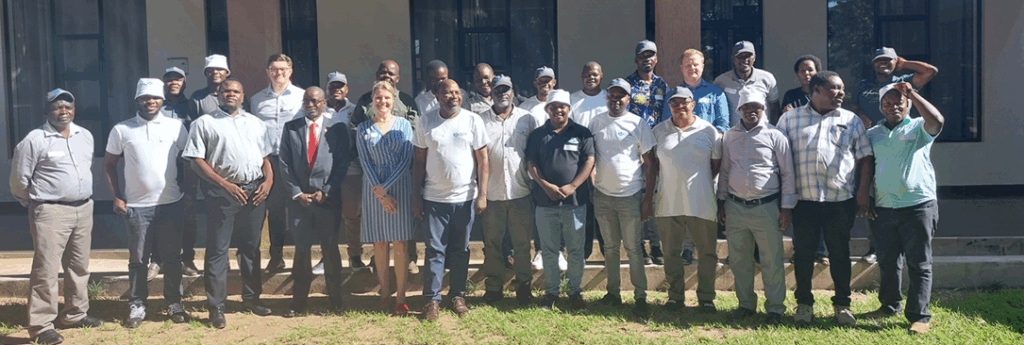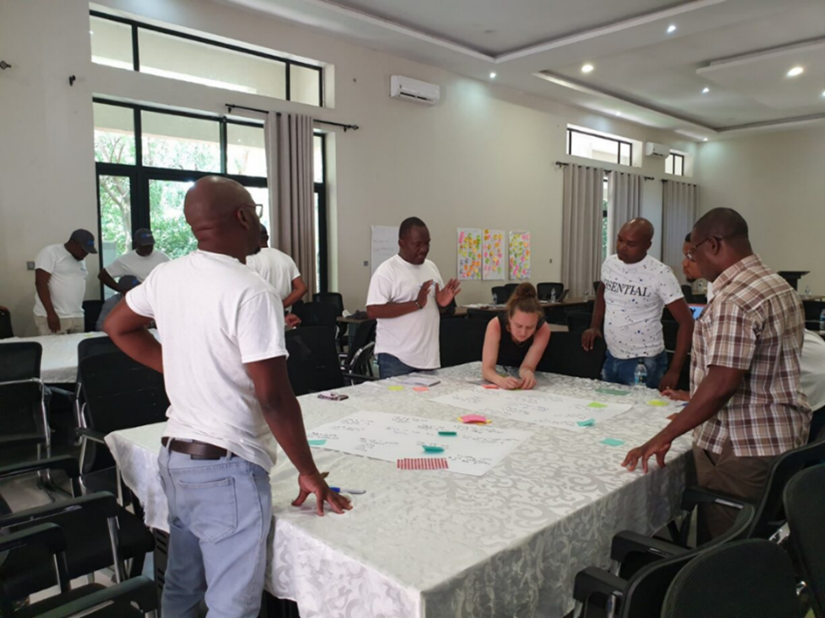From Scotland to Malawi and back – working together to ensure safer water and resilience to climate change
Scotland’s Hydro Nation International Centre has been working with experts, researchers and decision-makers in Malawi and Scotland to tackle the Malawian water challenges and better understand the potential impacts of climate change in Scotland.
The centre, based at The James Hutton Institute’s Craigiebuckler campus, was established in 2019 to support the Scottish Government’s Hydro Nation strategy.
This strategy aims to promote sustainable water management and apply Scotland’s expertise for global benefit, with a specific focus on maximising the value of water resources through collaboration and knowledge exchange with other countries, such as Malawi.
In 2018, the leaders of the two nations, separated by more than 5,000 miles, signed the Global Goals Partnership Agreement – a commitment between developed and developing countries to collaborate when addressing shared challenges. These challenges include the UN Sustainable Development Goals (SDGs) and the shared Global Goals, which come under six strands agreed by both governments: Health, Education, Civic Governance, Sustainable Economic Development, Renewable Energy and Water & Climate.
In Malawi, 31% of the population lack basic drinking water, 64% go without basic sanitation and 72% are unable to access basic hygiene services. Climate change is expected to only worsen these challenges. Cyclone Freddy, which struck in 2023, devastated the East African nation and significantly worsened the deadliest Cholera outbreak in a decade. Further, the drought of 2024 prompted the country’s government to declare a state of disaster, impacting food security for more than 9 million people.
To help address these challenges, the Hydro Nation International Centre launched a project to capture the knowledge and experience of those working at the interface between science and public policy in Malawi.
Titled Scotland’s Global Partnership for Knowledge and Expertise in Water and Climate (SPARKE), the used a combination of interviews, webinars and workshops to engage with 71 stakeholders from 31 cross-sectoral Malawian organisations.
Findings from SPARKE were used to help create a roadmap for science-policy exchange, which will help Malawian scientists, researchers and experts identify and clearly communicate key knowledge gaps or challenges to the nation’s water-related decision-makers, ensuring policies are informed by the best available evidence.
“The SPARKE project demonstrates the value of nations working together to address global water issues. Scotland has shared knowledge on how Malawi can connect science and policy to ensure evidence-based decision-making is used to respond water-related issues, while in return gained knowledge for our Malawian partners on the impacts of extreme flooding and drought events that Scotland could face in the future.”
Dr Kerr Adams, International Development Officer for the HNIC

Throughout the project, there was a strong focus on partnership working, collaboration and mutual learning between Scotland and Malawi. Malawian organisations BASEflow and BAWI Consultants worked closely with Scottish researchers, providing valuable expertise and knowledge while ensuring that skills and impact remained in Malawi to support longer-term sustainability and legacy of the projects.
Scotland also learned valuable lessons on responding to hydrological extremes and severe climates from their counterparts in Malawi, such as how to redesign raised water supply boreholes to increase resilience to flooding. These teachings could in turn help shape Scotland’s strategy for managing the growing impacts of climate change as many parts of rural Scotland are perhaps surprisingly reliant on boreholes for water.

Dr Kerr Adams, International Development Officer for the HNIC, said, “The SPARKE project demonstrates the value of nations working together to address global water issues. Scotland has shared knowledge on how Malawi can connect science and policy to ensure evidence-based decision-making is used to respond water-related issues, while in return gained knowledge for our Malawian partners on the impacts of extreme flooding and drought events that Scotland could face in the future.”
Dr Andrew Jamali from Malawi’s National Planning Commission added, “Not only do Malawi’s waters face significant pressure from negative climatic feedback evident in floods and droughts, which significantly impact water quantity and quality, but also from increasing demand on account of rapid population growth, spelling key concerns on health, hygiene, sanitation, and pressing energy, industrial and irrigation needs as the country pushes for agricultural and industrial productivity.
“Evidence-based policy and programmatic decisions to ensure balanced and sustainable water resource management are crucial to the overall social and economic transformation of the country. The SPARKE project has fostered deepened research-policy connectivity, key to transformative water resources management in Malawi, and catalysed collaborations and partnerships for socioeconomic growth through water lenses.”
